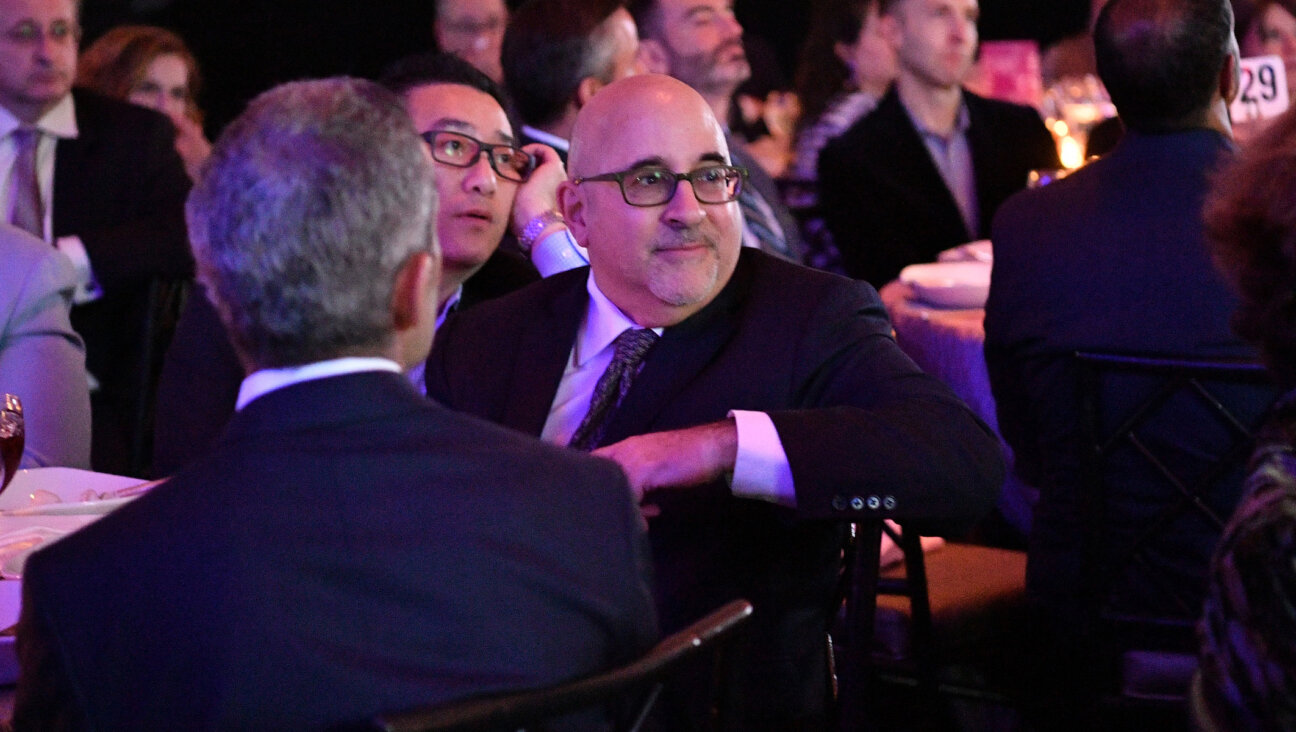Ask the Rebbetzin: How Do I Enjoy My Boring Family Passover Seder?

Image by Courtesy Alana Joblin Ain
Dear Rebbetzin,
I want this night to be different from all other nights. I’ve been going back “home” to my family’s Passover Seder (parents, siblings, aunts, uncles, cousins) for the past two decades, since becoming an adult. But there’s something stifling about being in that environment for this ritual — something that feels rote and counter to the whole enactment of the Seder in the first place!
I want to delve deeper, to really engage in what it means to be enslaved and free in our current lives. I’m not sure if it’s possible to have such a discussion in the home I grew up in. If it is, I certainly don’t know how to get us there. Any advice on how I become less stuck?
Sincerely,
Still Wandering
Dear Wandering,
I wonder what it is about being around those who have known us the longest that brings out such shyness? Certainly there is a vulnerability and risk involved in your trying to transcend what has become routine, and trying to make this year more meaningful. But I do think it’s worth your trying.
Recently, my aunt has been scanning and sharing family photographs from the late 1970’s. They feature my mom with an impossibly glamorous Farrah Fawcett blowout holding my infant brother. Next to my mom is her mom, and her mom’s mom — my great-great grandmother — who immigrated to this country from Russia. There’s a shot of her next to her siblings – my great uncles and their wives – whose legs I used to knock into as I crawled underneath our long Seder table, in my grandparent’s home, playing hide-and-seek with my brother and cousins.
Looking at these pictures, I am struck by how much I don’t know about this passed generation, how urgent I feel a pull towards my living grandmother to hear her stories. How deeply I’d like to understand what filled their lives, and what they held sacred.
When Dan and I sit around a Shabbat table of peers, he’ll often pose a question — about God, or miracles, or what enslaves us in own lives — and I’ll observe as people overcome an initial shyness and connect by sharing what’s in their hearts. What’s often most powerful to witness are close friends, or a couple, revealing that they learned something new around that table, about their partner or friend — something they had (over the course of many years) never uncovered.
This, of course, is easier to do with a leader at the table. Wandering, you may need to be that leader. Depending on what feels sincere or most comfortable, you could give your family a head’s up, that this year you have a few themes in mind that you’d love to be able to discuss around the Seder table. Or you could simply toss out a question during the Seder. You may be surprised that others are grateful and eager to delve along with you.
It takes many years for things to become rote, but Passover, as you mention, is counter to this. It is a time that we consider miracles. It is about the courage it takes to take the first step into an unknown freedom.
I hope it will be a more positive and meaningful experience for you. If you try, and it doesn’t go as you hope, there are two nights of Seders, and perhaps one option is to seek out a setting where you can engage in the type of dialogue that the holiday encourages, and that you’re yearning.
But sometimes, just entrusting someone else with your heart on a journey is enough for them to come along.
Wishing you and those you love a meaningful and liberating Exodus,
Alana
Click here to submit your own questions to the Rebbetzin for her weekly column.
For more information about a Second Night Passover Seder with Because Jewish, click here.
A message from our Publisher & CEO Rachel Fishman Feddersen

I hope you appreciated this article. Before you go, I’d like to ask you to please support the Forward’s award-winning, nonprofit journalism so that we can be prepared for whatever news 2025 brings.
At a time when other newsrooms are closing or cutting back, the Forward has removed its paywall and invested additional resources to report on the ground from Israel and around the U.S. on the impact of the war, rising antisemitism and polarized discourse.
Readers like you make it all possible. Support our work by becoming a Forward Member and connect with our journalism and your community.
— Rachel Fishman Feddersen, Publisher and CEO
























